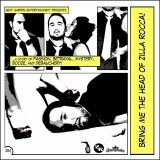Way down in the hole
WARNING: Spoilers aplenty. During The Wire’s penultimate episode, the finality finally set in. Clay Davis was confessing to Freamon about the shady illegalities of drug lawyers, and I thought, what a great set-up this would be for the next season. After already delving into the underbellies of the ghettos, the dock, City Hall, the school system and now the newsroom, The Wire could really do a terrific exposé of the machinations behind the legal system. It could further explore the backroom dealings of courthouses and all the loopholes exploited by shysters like Maury Levy. But as with so many other strata of B-more society (the church/religious institutions, the healthcare system, the foster care system/city services) the show has only grazed, we’ll just have to greedily imagine what depths The Wire could’ve excavated. Instead, we’re left to marvel at what scope it did (un)cover in its five-season run, cutting across class and race with revolutionary equanimity. Still, as one of the guiding principles in the show’s moral code is critical inquiry, it wouldn’t be fair to laud The Wire without a thoughtful assessment of its flaws. Namely, I want to look at the fifth season, which has been nearly unanimously derided as the weakest. Now that we have the full arc of the show to examine, I have to agree. While even imperfect episodes embarrass most other television programs at their best, noticeable problems did crop up in the storytelling. Some—the newsroom scenes, the serial killer storyline—have already been repeatedly and roundly picked apart, while other less noted ones were more intrinsic and inevitable to the format. First, the obvious problems. The most glaring for me was easily the simplicity of the Sun characters. We could always count on Gus to be saintly and Alma and Fletcher to be hardworking and honest, just as reliably as Templeton would be weaselly and the higher-ups oblivious and accommodating. Their actions were hugely predictable, never once upended with any sort of deviation or nuance. The Wire’s chief asset is its ambiguity (think Hamsterdam or Carcetti’s moral standing), but the newsroom was didacticism at its baldest. (They even needed to mock the word “Dickensian” twice and name an episode after it. Take that, TV critics!) After The New Yorker profile of David Simon, it’s hard not to imagine him settling scores with his old paper on some level. It’s also disappointing to think what great potential that arena held, had the writers not used it for such linear and obvious moralizing. The other oft-stated drawback of Season Five is the implausibility of McNulty’s red ribbon killer. (It’s ironic that the season’s foremost quote, Bunk’s “The bigger the lie, the more they believe” was pretty much disproved by the fan outcry.) The serial killer fabrication didn’t bother me as much, because it led to so many interesting ramifications. The ripples it sent up the chain of command, the politicking it revealed in the mayor’s office, and the dilemmas it created in some of our favorite characters all helped temper the disappointment of the newsroom. Nonetheless, it did strain credibility to think Freamon was so obsessed with Marlo that he wouldn’t consider his actions more deeply. All his court testimonies should’ve made him at least a little more hesitant about the eventual legalities of his arrests. A few more conversations about downsides, a few more doubts along the way would’ve helped sell this iffy premise better. Now the more inherent, perhaps unavoidable problems. The main one is also among the reasons that the show is so wonderful: its span. With every season, The Wire has ambitiously expanded its reach, trying to untangle and identify the many intricate facets of the drug trade. But as the cast’s continued to spiral, that’s meant less and less screen time (and sometimes simply cameos) for beloved characters. It’s meant episodes that have to shoehorn in as much as possible, sometimes to detrimental effect. In its last season, the show has had to weave together five years of threads, while still trying to tell a coherent, gripping narrative. Considering the feat required, Simon, Ed Burns et al. have done remarkably well, and I can only imagine the dissatisfaction if certain plots were just dropped altogether. Still, the canvas felt overloaded at times, stuffed to a point of distraction. That’s why I maintain that the best season remains the first, which had the clearest and still most compelling arc of all. (For the record, my list of seasons in order of preference is 1, 3, 4, 2, 5.) Related to this is another logistical problem: the ten-episode run of the final season. All the other seasons had either twelve or thirteen episodes, which gave them enough extra breathing room to unfurl at a reasonable pace. Here, the abbreviated run gave it an odd dynamic, feeling both slow to take shape and yet simultaneously rushed. On the one hand, Lester was just figuring out the clock code by Episode Eight; on the other, bodies were dropping toward the end at near-Departed proportions. With so many characters to deal with in less time than ever, the endgame also felt somewhat anxious and unsatisfying (and I don’t mean unsatisfying in the way that the show aims to be). Finally, in watching five seasons of arcs play out, it was becoming pretty obvious what to expect. Maybe you couldn’t always guess the exact outcome and maybe there were some tweaks in the formula, but most of the usual beats were hit. Reformers and courageous whistleblowers were routinely pushed out; compromisers and line-toers retained their positions. People in power were corrupted by power, eventually brought down, and speedily replaced by someone just as bad or worse. Real change is slow, arduous, and incremental, only achieved at an institutional level, but at the first signs of progress, it will be washed away in favor of easy solutions. In some sense, these inevitabilities are the crux of the show, driving home the points that Simon wants to raise. And yes, they largely do reflect the realities of life. But in Simon’s adherence to Greek tragedy and Shakespearean drama as inspiration, and in our increasing canniness as viewers, most of these lessons felt unsurprising, even redundant. Yet, even with these problems, the fifth season still had plenty to recommend it. The smart continuations of the schoolkids’ paths, Clay Davis’ dubious redemption, Bubs’ gradual, well-earned redemption, the grotesque hilarity of characters like Snoop and Landsman, and Jimmy’s rousing wake were all highlights that recalled the show at its peak. For me though, the best moment of all, the most chill-inducing and most heartening, was the final montage that showcased The Wire’s true star. There were the streets of Charm City, in all their strange, rundown, hard-to-love glory. In five years, these were the corners and alleyways we were given access to, beside the ordinary residents populating them, and where we were shown just how much occurs beyond the stereotypes and surface. The Wire reminded us how vital and indelible these surroundings are, despite their imperfections. It also proved that even the best show in television history can unfortunately fall victim to its own evident truths. |






















Comments on "Way down in the hole"
post a comment